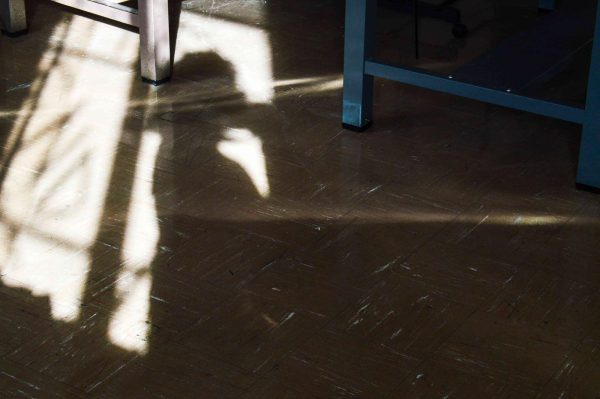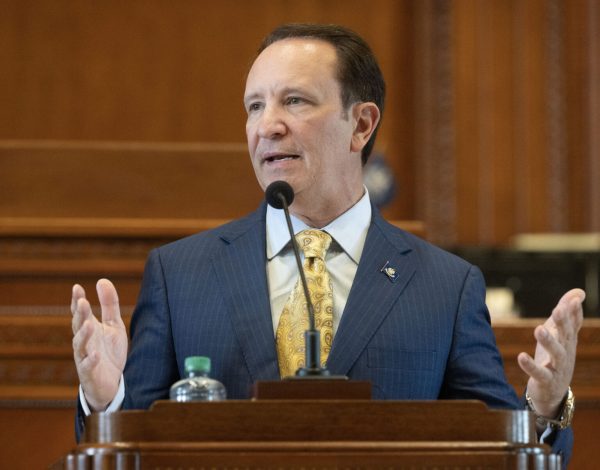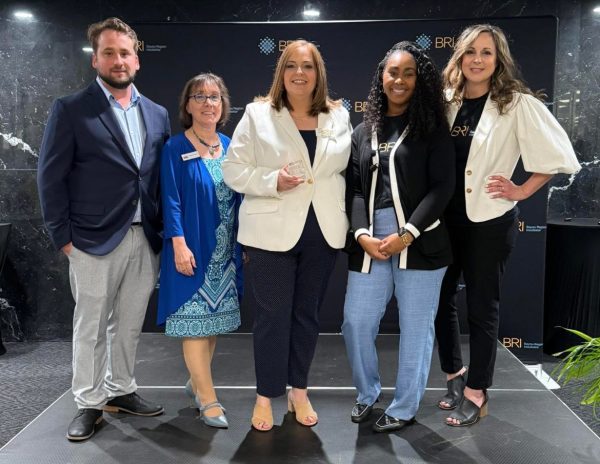Nicholls to offer criminal justice degree in near future
Nicholls State University will likely offer a new bachelors’ degree in criminal justice as early as the fall of 2016.
The degree is the result of a joint program between Fletcher Community College and Nicholls, where students finish two years of the program at Fletcher, and transfer to Nicholls to complete the final two years of the four-year degree. At Fletcher students will take 100 and 200 level courses and follow up with 300 and 400 level courses at Nicholls.
“Students that get the associates degree there can go on and get the baccalaureate degree in criminal justice here at Nicholls,” Lynn Gillette, provost and vice president of academic affairs, said.
About 5 years ago, there was a two-year criminal justice program at Nicholls. However, after the rise of community colleges, the state decided to transfer all two-year programs to the community college system.
“Dr. Stephen Michot was integral in designing the two-year program originally, and when community colleges were created, the state declared the two-year programs should go there. So, we handed the criminal justice program over to Fletcher, along with the instructors,” John Doucet, Dean of the College of Arts and Sciences, said.
In past years, a degree was not required to participate in the field, but a great need had been expressed in the community for higher education in law enforcement. This need prompted the discussion for the joint-degree program.
“There’s a need for it, people want advanced training. Sheriff’s offices want their employees to have advanced training, and this is going to provide another two years of university level academic training for their employees,” Doucet said.
Craig Jaccuzzo, chief of police at Nicholls State University, said, “There’s a trend towards a more polished officer, a more educated officer, with stronger writing skills and stronger presentation skills. Nicholls is offering the best and brightest to the community and the law enforcement in the area.”
Jaccuzzo has served as an adjunct instructor of police and community, police administration and juvenile justice courses at Flecther in the criminal justice program for seven years. He was also an adjunct professor at Nicholls when the two-year program was a part of the curriculum, where he taught crime administration, criminal procedures and state and local politics.
“There is a need for an intellectual background and understanding of the theory and philosophy of law,” Jaccuzzo said.
The degree will be implemented at a very low cost as Bachelor of Science in Criminal Justice that falls under the College of Science, and an increase in student enrollment is expected.
“At a peak, we may get 50 (students) per year because there are people out there that have been waiting for this for a while,” Doucet said.
“I think it’s a way we can increase enrollment and address a particular audience with interest in public service and law enforcement. It’s the next step of professionalizing the procession that I have been a part of for 27 years,” Jaccuzzo said.
The timeline for when students will be eligible to enroll in courses is projected for Fall 2016, but the approval process will ultimately determine the how soon the courses will be available.
“John has worked with several faculty members to write a letter of intent related to the program. The president and I have approved the letter of intent. We then had it sent to the University of Louisiana System. On Oct. 29, they approved the letter of intent. The next step is for it to go to the Board of Regents for approval,” Gillette said.
“We already have a professor, Dr. Michot, who is Southern Association of Colleges and Schools qualified to teach criminal justice. In order to offer the entire program to a cohort of students at the same time, we would probably have to hire another full-time criminal justice faculty member. Beyond that, there are people knocking at our door as adjuncts willing to teach criminal justice,” Doucet said.
Jaccuzzo is included in the group of adjuncts willing to contribute their services, and is an advocate for enhancing education for the profession.
“The big goal for me is that the state recognizes individuals who obtain a four-year degree and allows them to test for law enforcement jobs. I would want students with a four-year degree be able to take some sort of state licensing test to validate that profession,” Jaccuzzo said.
The desire for increase in higher education in law enforcement is beginning to represent a shift in how law is carried out, and suggests that law practitioners are adapting to the changes that are happening within the community.
“People need to realize that police are educators. We are the social workers, the counselors and the authority figures. We provide a resource center for the public, and a well-rounded education helps to become an effective officer. My advice to my students is to act like you give a damn because it’s what the career requires,” Jaccuzzo said.











